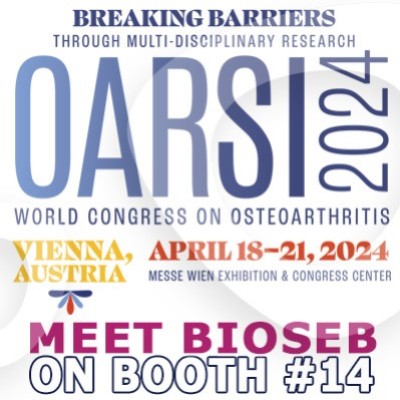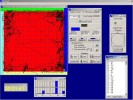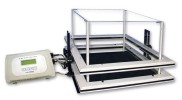Authors
R. Lalonde, M. Dumont, M. Staufenbiel, C. Sturchler-Pierrat, C. Strazielle.
Lab
Faculté de Médecine et de Pharmacie, INSERM EPI 9906, Rouen, France ; Novartis Pharma AG, Basel, Nervous System Research, Switzerland ; Faculté de Médecine, Laboratoire de Pathologie Moléculaire et Cellulaire en Nutrition (EMI-INSERM 0014) and Service de
Journal
Brain Research
Abstract
Transgenic mice overexpressing the _APP gene with the Swedish mutation under the control of the murine thy-1 promoter show Alzheimer-like characteristics including the accumulation of A_ protein in the cerebral cortex. Female 16-month-old APP23 transgenic mice were compared to age-matched non-transgenic mice in behavioral tests measuring spatial learning, exploration of environmental stimuli, anxiety, and motor coordination. APP23 transgenic mice had fewer fast ambulatory movements, either fast or slow stereotypy movements, and slow rears in a photocell activity chamber. The acquisition of spatial learning in the Morris water maze was impaired in APP23 transgenic mice, but not during the probe test or while swimming towards a visible platform. Neither were there intergroup differences in tests of anxiety or motor coordination. These results indicate that a learning deficit and hypoactivity, concordant with the early stages of Alzheimer’s disease, characterize this mouse model with A_ accumulation.
BIOSEB Instruments Used:
Acquisition software: ACTITRACK (ACTITRACK),Infrared Actimeter (LE8815)

 Pain - Thermal Allodynia / Hyperalgesia
Pain - Thermal Allodynia / Hyperalgesia Pain - Spontaneous Pain - Postural Deficit
Pain - Spontaneous Pain - Postural Deficit Pain - Mechanical Allodynia / Hyperalgesia
Pain - Mechanical Allodynia / Hyperalgesia Learning/Memory - Attention - Addiction
Learning/Memory - Attention - Addiction Physiology & Respiratory Research
Physiology & Respiratory Research
 Pain
Pain Metabolism
Metabolism Motor control
Motor control Neurodegeneration
Neurodegeneration Cross-disciplinary subjects
Cross-disciplinary subjects Muscular system
Muscular system General activity
General activity Mood Disorders
Mood Disorders Other disorders
Other disorders Joints
Joints Central Nervous System (CNS)
Central Nervous System (CNS) Sensory system
Sensory system Bioseb on booth #14 at OARSI 2024 in Vienna
Bioseb on booth #14 at OARSI 2024 in Vienna 
